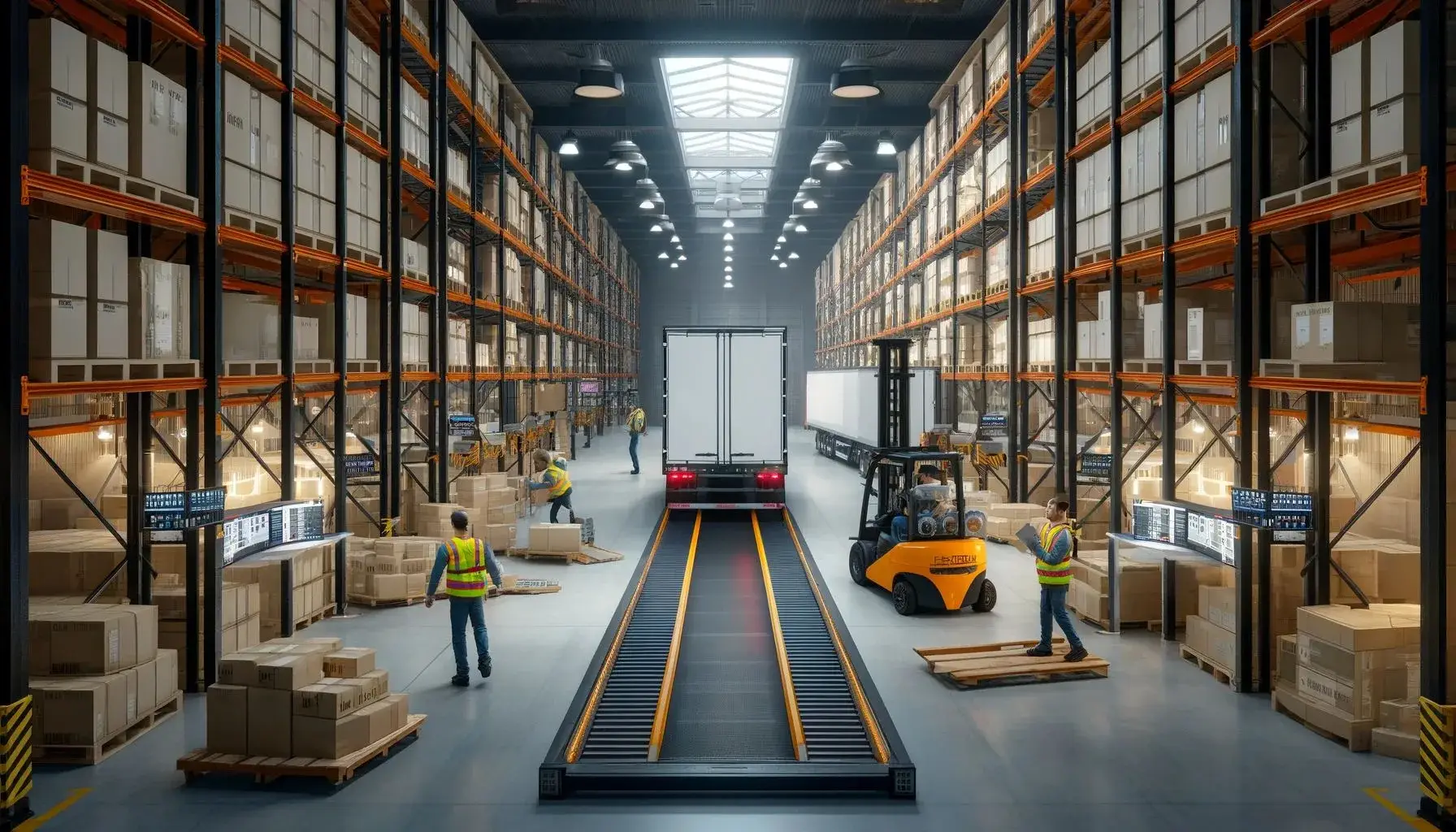If you’ve ever wondered about the intricate world of wholesale distributors, you’re in the right place. Let’s face it – the commercial supply chain can be downright confusing, especially when figuring out where to source products for your business. Whether you’re a seasoned retailer or just starting out, understanding wholesale distributors’ operations is crucial for your success.
Understanding the Basics: What’s the Difference Between a Wholesaler and a Distributor?
You know, this is probably one of the most common questions I hear in the industry. While many people use these terms interchangeably, there are some key differences that can impact your business decisions.
Wholesalers: The Bulk Buyers
Wholesalers typically:
* Purchase products in massive quantities directly from manufacturers
* Store large inventories in their own warehouses
* Sell to various businesses, including retailers and other distributors
* Often specialize in specific product categories or industries
Distributors: The Strategic Partners
Meanwhile, distributors usually:
* Work as authorized representatives of manufacturers
* Provide additional services beyond just product sales
* Maintain exclusive relationships with specific brands
* Offer technical support and product training
Where Do Wholesalers Buy Their Products From?
Now, here’s something fascinating about the supply chain – wholesale distributors don’t just magically acquire their inventory. They’ve got several primary sources:
Direct Manufacturing Relationships
The most common source is direct partnerships with manufacturers, especially for:
* Large-scale industrial products
* Specialized equipment
* Brand-name merchandise
* Custom-manufactured items
International Sourcing
Many wholesale distributors work with:
* Overseas manufacturers, particularly in Asia
* Import/export specialists
* Global trade networks – read more about Supply Chain Management here
* International manufacturing representatives
Domestic Production Facilities
Some focus on:
* Local manufacturers
* Regional production facilities
* Artisanal producers
* Specialty manufacturers
Finding the Right Wholesale Suppliers for Resellers
Let’s talk about something that keeps many business owners up at night – finding reliable wholesale suppliers. It’s not just about getting the best price; it’s about building relationships that’ll help your business thrive.
Research and Verification
Before partnering with any wholesale distributors:
* Check their business credentials and licenses
* Review their financial stability
* Verify their supplier relationships
* Investigate their reputation in the industry
Industry-Specific Considerations
Different sectors have unique requirements:
* Technology distributors need current certifications
* Food suppliers must meet strict safety standards
* Lighting distributors should offer energy-efficient options
* Medical supply distributors require special licensing
The Role of Lighting Distributors in Commercial Applications
Speaking of lighting distributors, they’re a perfect example of specialized wholesale distributors. These folks aren’t just selling bulbs – they’re providing complete lighting solutions for:
* Commercial buildings
* Industrial facilities
* Retail spaces
* Educational institutions
Emerging Trends in Commercial Lighting
The industry’s seeing some exciting changes:
* LED technology innovations Read more about Why Commercial Industrial LED Lighting is a Game-Changer for Your Business here.
* Smart lighting systems
* Energy management solutions
* Sustainable lighting options
Where Do Resellers Get Their Products? A Deep Dive
Successful resellers typically source their products through multiple channels:
Traditional Wholesale Distributors
These remain the backbone of many reselling operations because they:
* Offer competitive bulk pricing
* Maintain reliable inventory levels
* Provide consistent quality
* Handle shipping logistics
Direct-to-Manufacturer Relationships
Some resellers bypass wholesale distributors and go straight to manufacturers when they:
* Need custom products
* Have high-volume requirements
* Want exclusive arrangements
* Seek better margins
Online Wholesale Marketplaces
The digital revolution has created new opportunities through:
* B2B e-commerce platforms
* Industry-specific marketplaces Read more about Illuminate Your Outdoor Spaces with High-Performance LED Post Lights here.
* International trading websites
* Direct-to-business portals
Maximizing Your Relationship with Wholesale Distributors
Here’s the thing – working with wholesale distributors isn’t just a transaction; it’s a partnership. To make the most of it:
Communication is Key
* Keep regular contact with your rep
* Share your business goals and challenges
* Provide feedback on products and services
* Stay informed about new offerings
Volume Planning
Smart inventory management involves:
* Understanding minimum order requirements
* Planning seasonal purchases
* Maintaining optimal stock levels
* Coordinating delivery schedules
 |
Understanding Drop Shipping: A Modern Distribution Model
You’ve probably heard the buzz about drop shipping, but how does it fit into the traditional wholesale distribution landscape? Let’s break it down.
What is Drop Shipping?
Drop shipping is a fulfillment method where retailers don’t keep products in stock. Instead:
* The retailer partners with suppliers who hold the inventory
* When a customer places an order, it’s forwarded to the supplier
* The supplier ships the product directly to the customer
* The retailer never physically handles the merchandise
The Drop Shipping Ecosystem
Relationship with Manufacturers
Manufacturers might participate in drop shipping by:
* Working directly with high-volume retailers
* Maintaining dedicated drop shipping facilities
* Offering white-label shipping services
* Providing real-time inventory updates
Role of Wholesale Distributors
Many wholesale distributors have adapted to include drop shipping by:
* Acting as intermediaries between manufacturers and retailers
* Managing multiple brand relationships
* Handling returns and customer service
* Providing inventory and shipping APIs
Advantages of Drop Shipping
For retailers:
* Lower upfront investment
* Reduced inventory risk
* Ability to test new products
* Geographic flexibility
For wholesale distributors:
* Expanded customer base
* Increased order volume
* Better inventory utilization
* Additional revenue streams
Challenges and Considerations
Before jumping into drop shipping, consider:
* Higher per-unit costs compared to bulk wholesale
* Less control over shipping times
* Potential inventory synchronization issues
* Complex return processes
Integration with Traditional Distribution
Modern wholesale distributors often offer hybrid solutions:
* Combined bulk wholesale and drop shipping services
* Flexible fulfillment options
* Integrated inventory management
* Unified ordering systems
Future Trends in Wholesale Distribution
The wholesale distribution landscape is evolving rapidly. Keep an eye on:
Digital Transformation
* E-commerce integration
* Automated inventory management
* Real-time tracking systems
* Digital payment solutions
Sustainability Initiatives
* Eco-friendly packaging
* Carbon footprint reduction
* Sustainable product lines
* Green logistics solutions
Frequently Asked Questions
Q: What’s the minimum order value typically required by wholesale distributors?
A: It varies widely by industry and distributor, but expect minimums ranging from $500 to $5,000 for most commercial applications.
Q: How do I verify if a wholesale distributor is legitimate?
A: Check their business registration, request references, verify their physical address, and review their industry certifications.
Q: Can I mix different brands or products in a single order?
A: This depends on the distributor’s policies, but many modern wholesale distributors offer mixed-order options for greater flexibility.
Q: What payment terms do wholesale distributors usually offer?
A: Common terms include net-30 or net-60 for established businesses, while new accounts often require payment upfront.
Q: How often should I expect price changes from wholesale distributors?
A: Price updates typically occur quarterly, but market conditions can lead to more frequent adjustments.
Q: Can I combine drop shipping with traditional wholesale ordering?
A: Yes, many wholesale distributors offer hybrid models that allow you to mix fulfillment methods based on your needs.
Q: How do returns work in a drop shipping arrangement?
A: Return policies vary by distributor, but typically involve either returning products directly to the supplier or to a designated returns center.
Conclusion
Navigating the world of wholesale distributors doesn’t have to be overwhelming. Whether you’re sourcing lighting solutions, industrial equipment, or retail merchandise, understanding the ecosystem is your first step toward success. Remember, the best wholesale distributors aren’t just suppliers – they’re partners in your business growth.
The key is to build strong relationships, stay informed about industry trends, and maintain clear communication with your chosen distributors. As the marketplace continues to evolve, those who adapt and leverage these partnerships effectively will find themselves ahead of the competition.
Take your time researching potential partners, ask plenty of questions, and don’t be afraid to negotiate terms that work for your business. After all, your success is their success in the interconnected world of wholesale distribution.

